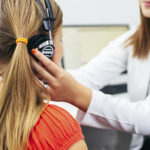The CDC reports that tooth decay (cavities) is one of the most common chronic conditions of childhood in the United States. Untreated tooth decay can cause pain and infections that may lead to problems with eating, speaking, playing, and learning. Consider these stats:
- About 1 in 5 (20%) children aged 5 to 11 years and 1 in 7 (13%) adolescents aged 12 to 19 years have at least one untreated decayed tooth.
- The percentage of children and adolescents aged 5 to 19 years with untreated tooth decay is twice as high for those from low-income families (25%) compared with children from higher-income households (11%).
Education is Key to Preventing Tooth Decay
The Children’s Dental Health Project recommends the promotion of good oral health practices during childhood to establish a foundation for lifelong health and well-being. Dental caries, the disease that causes cavities, is the most common chronic childhood disease. It is five times more common than asthma and affects 26% of preschoolers, 44% of kindergarteners and more than half of teens.
The occurrence of tooth decay before the age of six, known as Early Childhood Caries, is particularly concerning, as the presence of cavities in childhood is the best predicator of tooth decay later in life.
The good news is that dental caries and cavities are preventable and manageable with correct information and education. School nurses play a key role in promoting oral health education for students and families. By promoting prevention and advocating care for students, school nurses set the stage for lifelong good oral hygiene practices.
8 Good Oral Hygiene Habits for Students (courtesy of The American Dental Association®)
Here are a few best practices that you can share with students to help them develop healthy oral hygiene habits.
- Replace your toothbrush every 3-4 months.
- Brush your teeth for at least two minutes, twice a day.
- Be aware of the pressure you’re using. Too much pressure may damage gums.
- Brush your teeth at least 60 minutes after eating. Brushing right after eating can cause tiny particles of enamel to be brushed away.
- Store your toothbrush upright and let it air dry. Avoid keeping your toothbrush in a closed container.
- Use a toothbrush with soft bristles. Hard bristles can do damage to the enamel, root surfaces and gum tissue.
- Use the proper brushing technique, which you can learn more about here.
- It is especially important to brush before bed because the flow of saliva, which is the mouth's own cleaning system, slows down during the night leaving the mouth more at risk from decay.
Click here to browse MacGill’s selection of oral care products.





